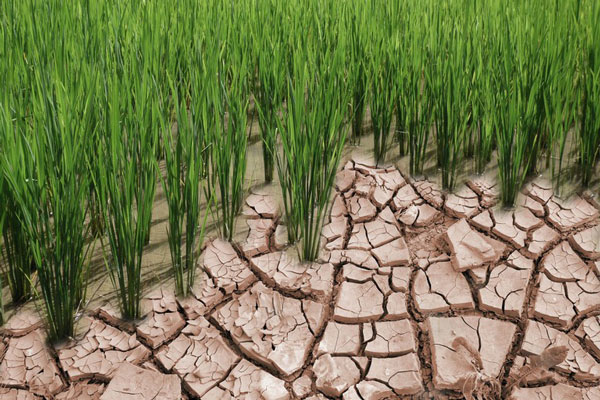
By Peter Makwanya
AFTER a long wait for the first part of the Inter-governmental Panel on Climate Change (IPCC) report, it has now been released. The document is in the public domain.
The report will go a long way in assisting countries to mitigate impacts of climate change. Apart from highlighting the increased impacts and intensity of climatic events around the world, there are no new issues in the report.
Before getting into the details of the report, it would be best to highlight what this IPCC is all about. The IPCC was established to provide policy-makers and governments around the world with regular scientific assessments of climate change, its implications and potential future risks, including providing adaptation and mitigation options. Through its assessments, the IPCC determines the extent of knowledge on climate change.
Although the IPCC is a body of scientists which carries out its own research using advanced scientific models and technologies, most of the information it compiles and make assessments on comes from member States.
The following are some of the projected outcomes contained in the report: Warming of the planet is to continue, more extreme climate events such as droughts are projected to increase in both frequency and intensity. Floods, wildfires and tropical cyclones among others.
The report also noted that the relative efficiency of carbon sinks the earth’s natural cleaning system such as the forests, oceans and land, will go down in the coming years as emissions continue to rise.
This also means that in one way or the other, these natural carbon absorbing systems may be overwhelmed, hence we need not invest all our trust in these natural cleaning mechanisms and accelerate reforestation.
- Chamisa under fire over US$120K donation
- Mavhunga puts DeMbare into Chibuku quarterfinals
- Pension funds bet on Cabora Bassa oilfields
- Councils defy govt fire tender directive
Keep Reading
Therefore, other emission reduction means such as net-zero emission targets are a requirement in order to reduce greenhouse gas emissions by 40-50% by 2050.
Focusing on Africa, the story of increases in average temperatures across the continent were projected including drier conditions exceeding global average. Frequency and intensity of heavy rainfall is expected across Africa, among others. In this regard, what all these global projections imply is the subject of this discussion. Member governments by now are quite aware of the IPCC’s mode of projections and requirements even before they are released. As they send their reports to the IPCC, they may end up contributing what IPCC always wants to hear and as IPCC releases its outcomes, it may also do the same by reporting the usual as unusual just to spur governments into action.
Furthermore, failure to be on the ground by IPCC collaborating with the member governments is a procedural gap, thereby missing lots of information and significant details that can influence their climate change projections. Over dwelling on computer-based modelling and advanced technologies may miss some important data in the process.
Not being active on the ground has made it possible for IPCC to invest in linguistic templates against the usual modal verb communication and hedging, common with scientific communication but clouded in uncertainties and lack of precision.
This time they were on the specific and precise mode in order to induce anxiety and action in member governments who usually don’t walk the talk.
After compiling and summarising reports from member governments, the IPCC will then make informed projections. Of course the reality and likelihood of projections coming out true is high due to a number of reasons.
First, the reports from member governments and policy-makers usually spell out what is already in the public domain and they would not want to be seen going either way. Second, phrases like extreme heat or cold, frequent and intense heavy rainfall are not new and they may be used to substitute each other, if the outcome goes either way. Third, in the context of extreme heat, less precipitation and moisture stress, it is a given that temperatures are bound to rise and complemented by occasional heavy downpours culminating in floods, a very common scenario these days.
Relying on the same global emission limit of 1,5 degrees celsius is not a promising pathway to the net-zero achievement as there is no yardstick apart from predictions.
There is no assurance that 1,5 degrees celsius can be maintained. It is on the mitigatory side where IPCC appears to be getting unreliable data from its member States.
In the context of COVID-19, IPCC cannot rely on overused and unreliable data in order to come up with sound and correct predictions.
This is why active collaborations on the ground are required so that IPCC scientists’ counter misinformation packaging and communication massaging from its member governments.
While developing countries have not managed to deal with issues of livelihoods and extreme poverty in their countries, they cannot just wake up one day and provide reliable data. This is not to say that developing countries are not participating in adaptations and mitigatory measures but many of them are a pretentious lot who do not measure up to global expectations and commitments.
In addition, continuing to package old information as new will not contribute to the climate actions we want or net-zero targets envisaged.
While all the cited projected outcomes are seen as threats or real, the same thing has to be said of the human preparedness as success happens when opportunities meet actual preparedness. Holistic, intrinsically driven and sufficient preparedness are key in the global climate change discourse. There is no substitute for preparedness and people leadership in spearheading nations towards net-zero realisations.
Above all, net-zero emission targets are not cheaper to implement and they alienate the poor from realising sustainable development goals. Otherwise the much-publicised Paris Agreement is a public relations stunt designed to cool and calm nerves.











